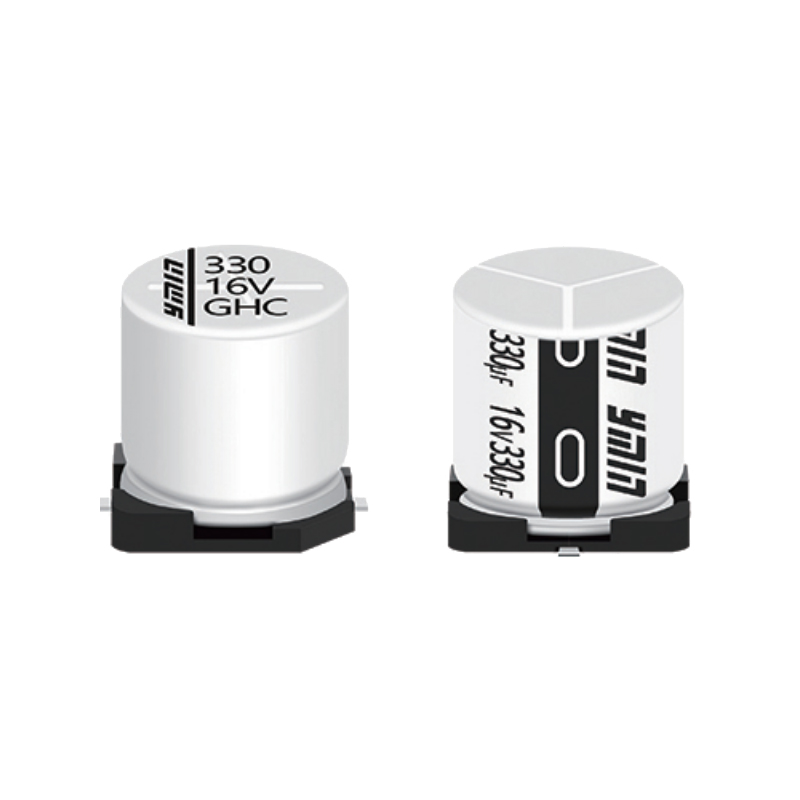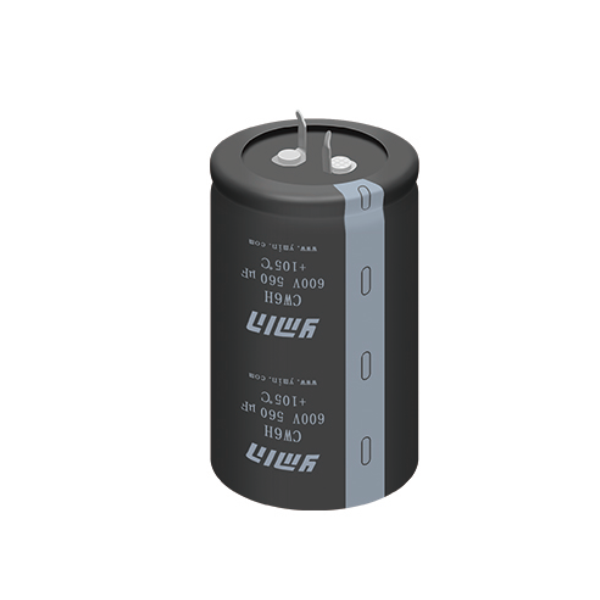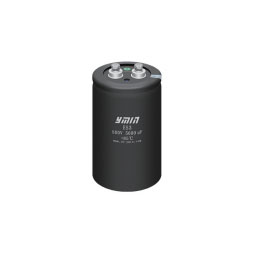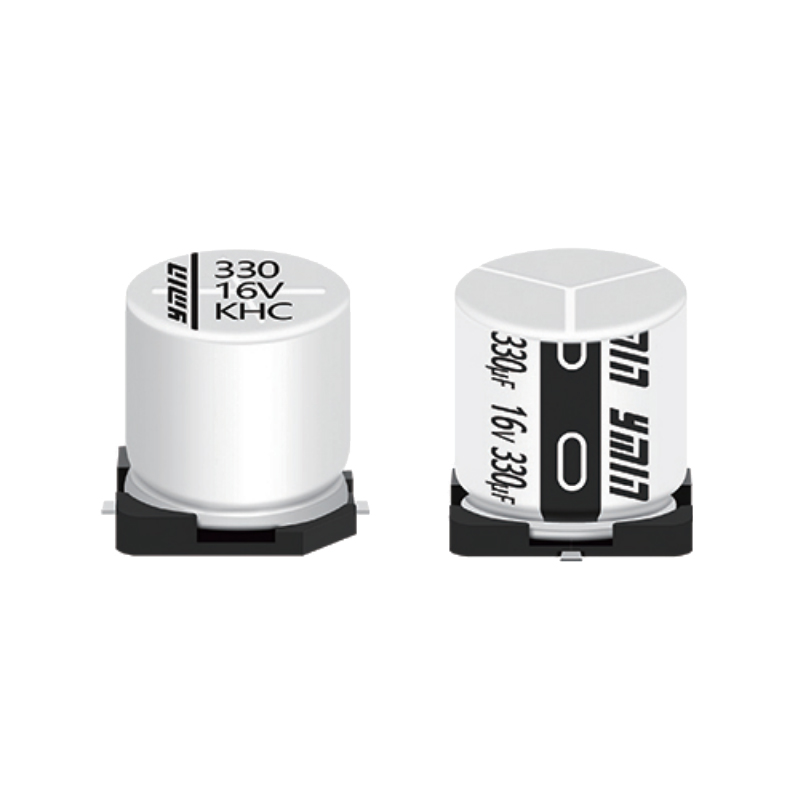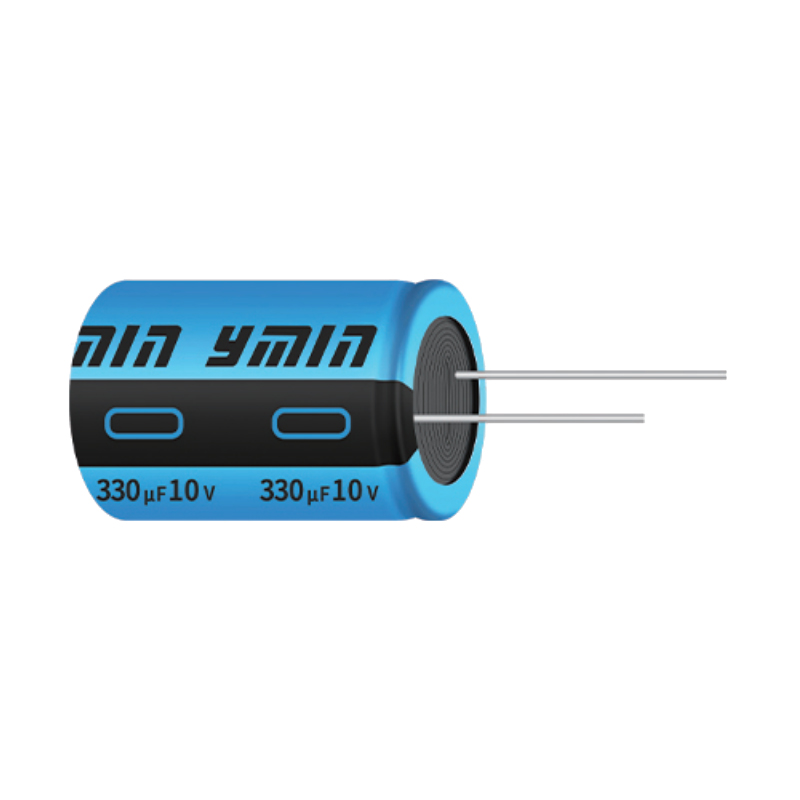Main technical parameters
| Item | characteristic | |||||||||
| Operating temperature range | -25~ + 130℃ | |||||||||
| Nominal voltage range | 200-500V | |||||||||
| Capacitance tolerance | ±20% (25±2℃ 120Hz) | |||||||||
| Leakage current (uA) | 200-450WV|≤0.02CV+10(uA) C: nominal capacity (uF) V: rated voltage (V) 2 minutes reading | |||||||||
| Loss tangent value (25±2℃ 120Hz) | Rated voltage (V) | 200 | 250 | 350 | 400 | 450 | ||||
| tg δ | 0.15 | 0.15 | 0.1 | 0.2 | 0.2 | |||||
| For nominal capacity exceeding 1000uF, the loss tangent value increases by 0.02 for every 1000uF increase. | ||||||||||
| Temperature characteristics (120Hz) | Rated voltage (V) | 200 | 250 | 350 | 400 | 450 | 500 | |||
| Impedance ratio Z(-40℃)/Z(20℃) | 5 | 5 | 7 | 7 | 7 | 8 | ||||
| Durability | In a 130℃ oven, apply the rated voltage with rated ripple current for a specified time, then place at room temperature for 16 hours and test. The test temperature is 25±2℃. The performance of the capacitor should meet the following requirements | |||||||||
| Capacity change rate | 200~450WV | Within ±20% of the initial value | ||||||||
| Loss angle tangent value | 200~450WV | Below 200% of the specified value | ||||||||
| Leakage current | Below the specified value | |||||||||
| Load life | 200-450WV | |||||||||
| Dimensions | Load life | |||||||||
| DΦ≥8 | 130℃ 2000 hours | |||||||||
| 105℃ 10000 hours | ||||||||||
| High temperature storage | Store at 105℃ for 1000 hours, place at room temperature for 16 hours and test at 25±2℃. The performance of the capacitor should meet the following requirements | |||||||||
| Capacity change rate | Within ±20% of the initial value | |||||||||
| Loss tangent value | Below 200% of the specified value | |||||||||
| Leakage current | Below 200% of the specified value | |||||||||
Dimension (Unit:mm)

| L=9 | a=1.0 |
| L≤16 | a=1.5 |
| L>16 | a=2.0 |
| D | 5 | 6.3 | 8 | 10 | 12.5 | 14.5 |
| d | 0.5 | 0.5 | 0.6 | 0.6 | 0.7 | 0.8 |
| F | 2 | 2.5 | 3.5 | 5 | 7 | 7.5 |
Ripple current compensation coefficient
①Frequency correction factor
| Frequency (Hz) | 50 | 120 | 1K | 10K~50K | 100K |
| Correction factor | 0.4 | 0.5 | 0.8 | 0.9 | 1 |
②Temperature correction coefficient
| Temperture(℃) | 50℃ | 70℃ | 85℃ | 105℃ |
| Correction Factor | 2.1 | 1.8 | 1.4 | 1 |
Standard Prodcuts List
| Series | Volt(V) | Capacitance(μF) | Dimension D×L(mm) | Impedance (Ωmax/10×25×2℃) | Ripple Current(mA r.m.s/105×100KHz) |
| LED | 400 | 2.2 | 8×9 | 23 | 144 |
| LED | 400 | 3.3 | 8×11.5 | 27 | 126 |
| LED | 400 | 4.7 | 8×11.5 | 27 | 135 |
| LED | 400 | 6.8 | 8×16 | 10.50 | 270 |
| LED | 400 | 8.2 | 10×14 | 7.5 | 315 |
| LED | 400 | 10 | 10×12.5 | 13.5 | 180 |
| LED | 400 | 10 | 8×16 | 13.5 | 175 |
| LED | 400 | 12 | 10×20 | 6.2 | 490 |
| LED | 400 | 15 | 10×16 | 9.5 | 280 |
| LED | 400 | 15 | 8×20 | 9.5 | 270 |
| LED | 400 | 18 | 12.5×16 | 6.2 | 550 |
| LED | 400 | 22 | 10×20 | 8.15 | 340 |
| LED | 400 | 27 | 12.5×20 | 6.2 | 1000 |
| LED | 400 | 33 | 12.5×20 | 8.15 | 500 |
| LED | 400 | 33 | 10×25 | 6 | 600 |
| LED | 400 | 39 | 12.5×25 | 4 | 1060 |
| LED | 400 | 47 | 14.5×25 | 4.14 | 690 |
| LED | 400 | 68 | 14.5×25 | 3.45 | 1035 |
In today's rapidly evolving electronics industry, component reliability and performance are crucial. YMIN Electronics' series of LED aluminum electrolytic capacitors are designed for high-performance applications in harsh environments, particularly in lighting, industrial power supplies, and automotive electronics.
Excellent Product Features
Our aluminum electrolytic capacitors, manufactured using advanced liquid electrolyte technology and high-quality materials, offer a number of exceptional features. They operate stably over a wide temperature range of -25°C to +130°C, and feature a rated voltage range of 200-500V, meeting the needs of most high-voltage applications. Capacitance tolerance is controlled within ±20%, ensuring precision and consistency in circuit design.
Most notable is their high-temperature performance: they offer continuous operation for 2,000 hours at 130°C and up to 10,000 hours at 105°C. This exceptional high-temperature resistance makes them particularly suitable for high-temperature LED lighting applications, such as high-power streetlights, industrial lighting, and indoor commercial lighting systems.
Strict Technical Specifications
Our products meet AEC-Q200 standards and are RoHS-compliant, demonstrating our commitment to both quality and environmental protection. Leakage current is extremely low, adhering to the standard of ≤0.02CV+10(uA), where C is the nominal capacitance (uF) and V is the rated voltage (V). The loss tangent value remains between 0.1-0.2 depending on the voltage. Even for products with a capacitance exceeding 1000uF, the increase is only 0.02 for each additional 1000uF.
The capacitors also offer excellent impedance ratio characteristics, maintaining an impedance ratio between 5-8 within the temperature range of -40°C to 20°C, ensuring excellent performance even in low-temperature environments. Durability testing shows that after exposure to rated voltage and ripple current at 130°C, the capacitance change remains within ±20% of the initial value, while the loss tangent value and leakage current are both less than 200% of the specified values.
Wide Applications
LED Lighting Drivers
Our capacitors are particularly suitable for LED driver power supplies, effectively filtering high-frequency noise and providing stable DC power. Whether used in indoor lighting or outdoor streetlights, they ensure long-term stable operation and reduce maintenance costs.
Industrial Power Systems
In the industrial power supply sector, our products can be used in devices such as switching power supplies, inverters, and frequency converters. Their low ESR characteristics help reduce power losses and improve overall system efficiency.
Automotive Electronics
Compliance with AEC-Q200 standards enables our products to meet the stringent reliability requirements of automotive electronics and are suitable for applications such as onboard power systems, ECU control units, and LED lighting.
Communications Equipment
In communications base stations and equipment, our capacitors provide stable power filtering, ensuring clear and stable communication signals.
Complete Product Specifications
We offer a comprehensive product line, covering a wide range of capacitance options from 2.2μF to 68μF at 400V. For example, the 400V/2.2μF model measures 8×9mm, has a maximum impedance of 23Ω, and a ripple current of 144mA. The 400V/68μF model, on the other hand, measures 14.5×25mm, has an impedance of only 3.45Ω, and a ripple current of up to 1035mA. This diverse product line enables customers to select the most suitable product for their specific application needs.
Quality Assurance
All products undergo rigorous durability and high-temperature storage testing. After 1000 hours of storage at 105°C, the product's capacity change rate, loss tangent, and leakage current all meet specified standards, ensuring long-term product reliability.
We also provide detailed frequency and temperature correction coefficients to facilitate engineers in accurately calculating ripple current values under different operating conditions. The frequency correction coefficient ranges from 0.4 at 50Hz to 1.0 at 100kHz; the temperature correction coefficient ranges from 2.1 at 50°C to 1.0 at 105°C.
Conclusion
YMIN aluminum electrolytic capacitors combine high performance, high reliability, and long life, making them an ideal choice for applications such as LED lighting, industrial power supplies, and automotive electronics. We are committed to providing customers with high-quality products and services and jointly promoting the development of the electronics industry.


